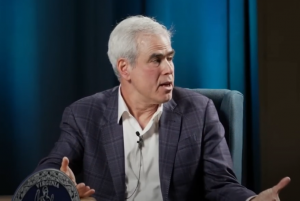
FL, GA, and MO Legislatures Pass Reasonable Childhood Independence Bills, Adding Protection for Kids and Parents Rights
Florida, Georgia, and Missouri Join Growing National Movement to Protect Kids’ Right to Reasonable Independence Without Criminalizing Parents
NEW YORK, NY, UNITED STATES, May 7, 2025 /EINPresswire.com/ -- April is a good time for children to get to play outside, head for a nearby playground or ride their bikes around the block. This year, April has also been a good time for children’s rights to do these things, and parents’ rights too. Three states—Florida, Georgia and Missouri--each passed legislation this month declaring it is not parental neglect or child endangerment to take their eyes off their kids when the parents make the judgment that their kids are ready for some good old-fashioned independence—giving them the right to just go play by themselves for a while!
These three states, which are now sending their legislation to their respective Governors’ desks, will soon join the eight states that have already enacted similar laws in recent years, starting in 2018 with Utah, followed by Oklahoma and Texas in 2021, Colorado in 2022, and Connecticut, Illinois, Montana, and Virginia all in 2023.
Each of the states’ bills addresses a problem that shouldn’t be a problem. Yet, nowadays, it’s often rare to see children playing outside in many communities across America. All around the country, children face diminishing opportunities to play outside with other kids and manage on their own without constant adult micro-management.
The national non-profit Let Grow, founded in 2017, has been pushing to make it “easy, normal and legal” to give kids reasonable independence, recognizing that kids best gain confidence, resilience, and social skills they need for success as adults when they have the chance to do things on their own. The group has a school, community and legal programs that aim to help children “take back childhood” and help adults “let go.”
At the same time, experts increasingly have drawn a clear connection between constant adult supervision and increasing rates of anxiety and depression in children, fueling what is now seen as a children’s mental health crisis. And parents, fearing arrest or child protection investigations, have been increasingly reluctant to let their kids out of their sight, even when they know their kids are ready.
Legislation backed by Let Grow and allied groups, on both the right and the left side of the aisle, clarifies that the mere fact that a child is “unsupervised” does not constitute neglect or child endangerment under state law.
In 2025, Let Grow’s efforts got an additional boost from its co-founder Prof. Jonathan Haidt’s publication of The Anxious Generation. The last section of the best-seller, co-written with Let Grow’s Skenazy, calls for passage of reasonable childhood legislation--giving children their childhoods back if and when they no longer are continuously on their digital devices.
Georgia was the first of the three to gain its legislature’s seal of approval. Georgia’s legislation, S.B. 110, passed on March 25 (final House vote) and was sent to Gov. Kemp on April 7 (in Georgia, the Governor is given 45 days to review legislation, which will become law unless he vetoes the measure).
The Georgia bill was spurred forward by the story of Brittany Patterson, a rural Georgia mom was arrested at home in front of her after her 10 (almost 11 year old) had walked less than a mile into town by himself, all without incident. Patterson’s “crime” was that she had let him stay home while she took his older siblings to a medical appointment. The case sparked international outrage. Jason Widner, who at age 7 had been stopped multiple times by authorities for the “infraction of riding his bike in the park next to his home" also testified in person in support of the bill. Pro bono lobbyist Jesse Weathington worked closely with Senate Majority Caucus Leader Jason Anivarte. SB 110, joined by Kay Kirkpatrick, and Randy Robinson (all Senate Republicans) and Senate Democrat Jason Esteves, along with Rep. Eddie Lumsen in the House. The bill was sent to Governor Kemp’s desk on April 7.
Not to be outdone by its neighbor to the north, Florida quickly followed Georgia’s lead with an effort led by Rep. Monique Miller (R.), H.B. 1191. Miller was inspired to initiate the legislation after hearing a talk by Prof. Haidt in which he praised the efforts of Let Grow to enact reasonable independence protections. Rep. Leonard Spencer (D.) joined in co-sponsoring the House bill. In the Florida Senate, Sen. Erin Grall (R.) sponsored the Senate’s companion bill, S. 1286 , which was co-introduced by Sen. Barbara Sharief (D.), with unanimous passage on the Senate floor on April 9. The Florida House took its final vote on H.B. 1191 on April 29. Both the Senate and the House sent identical bills to Governor DeSantis’s desk for his signature.
More good news for children came from the heartland on April 29, too, when the Missouri legislature passed a 66-page consolidated child welfare-focused bill that included “reasonable childhood independence” provisions. Rep. Josh Hurlbert (R.) led the Missouri effort to include the Let Grow-backed language, which had broad bipartisan support from child and family advocates, parents’ rights and civil liberties groups alike. The Missouri measure will head to Governor Mike Kehoe’s desk shortly.
The Florida and Georgia bills will go into effect on July 1, 2025, while. Missouri’s legislation will take effect on August 25, 2025, assuming the governors do not exercise their veto (which is considered unlikely given the broad bipartisan support each measure received).
Let Grow provides resources to support these legislative efforts. Its Toolkit and Maps show where children’s independence is legally protected, and where there is still work needed before kids and parents’ simple right to let the kids play on their own will be backed by law.
Andrea Keith
Let Grow
editor@letgrow.org
Visit us on social media:
LinkedIn
Instagram
Facebook
YouTube
X
Distribution channels: Culture, Society & Lifestyle, Education, Human Rights, Law, U.S. Politics
Legal Disclaimer:
EIN Presswire provides this news content "as is" without warranty of any kind. We do not accept any responsibility or liability for the accuracy, content, images, videos, licenses, completeness, legality, or reliability of the information contained in this article. If you have any complaints or copyright issues related to this article, kindly contact the author above.
Submit your press release



